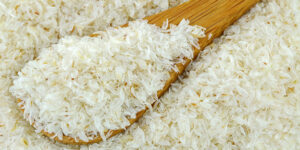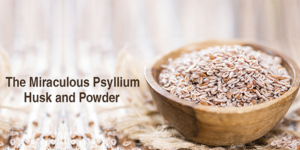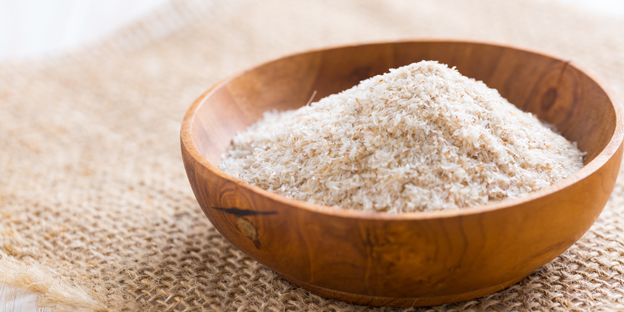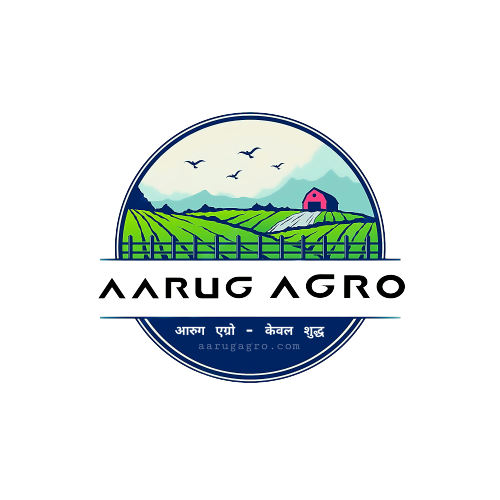Knowing everything about psyllium : Psyllium is a soluble fiber commonly used in products like Metamucil as a gentle bulk-forming laxative. It is also known as Isabgol or Aspagol and is derived from a shrub-like herb called Plantago ovata. The majority of psyllium seeds are exported from India, despite the fact that it grows everywhere.
Various forms of psyllium are available, including husk, granules, capsules, and powder, making it convenient for people to consume. It is widely used in many commercial sectors, such as food, pharmaceuticals, and others, due to its high soluble fiber content and good binding properties.
As part of the daily fiber requirement of the body, psyllium contains a high amount of soluble fiber. Body lipids and proteins are affected by psyllium’s soluble fiber, which boosts metabolic processes.
A healthy diet is supported by this product, as well as relief and movement of the upper GI tract. In tPsyllium absorbs water rapidly and becomes a thick, viscous compound that cannot be digested in the small intestine due to its excellent water solubility sugAs a result, cholesterol, triglycerides, and blood sugar levels are controlled
Psyllium’s well-known health benefits
- In the stomach, psyllium forms a viscous gel due to its high water solubility.
- Constipation symptoms can also be relieved by psyllium. By increasing bowel contractions, it helps stools move through the digestive tract and stimulates bowel contractions.
- This food contains prebiotics, which are good sources of fiber. Furthermore, it increases gut bacteria growth along with being a natural prebiotic fiber.
- Weight loss management can also benefit from it. The satiety or fullness that you experience after consuming psyllium husk can help you cope with frequent hunger pangs.
- Additionally, it promotes heart health. Low triglyceride levels and lower coronary heart disease risk are associated with a diet high in water-soluble fiber.
- Sugars are trapped and released more gradually when psyllium transforms into gel form, which regulates blood sugar levels.
-
DEMAND CONTINUES STRONG FOR ISABGOL EVEN AS PRODUCTION DECLINES!
Psyllium is also recommended by doctors to help soften stool and reduce hemorrhoids’ pain.
Psyllium and Diet: How Can It Help?
Psyllium can be incorporated into your diet in a variety of ways now that you understand its benefits:
- Psyllium can be combined with fruit smoothies as a topping.
- Also, psyllium is a great addition to oatmeal.
- A delicious and healthy option is to make psyllium pancakes or waffles.
- These supplements are suitable for those seeking a convenient and quick way to consume psyllium fiber.
EXPORTERS OF PSYLLIUM HUSK

- Knowing everything about psyllium aagrug agro
Isabgol/Psyllium is the common name for Plantago ovate in India. As a result of this shape, the seeds are called Isap and Ghol, which mean horse’s ears. As this tiny pale brown seed has almost 200 different species and is very popular across all countries today. A European region that extends up to the Sutlej and West Asia. Additionally, the species is distributed in Southern Spain, Northern Africa, the Middle East, and North Western Asia. In Ayurveda, Psyllium Seeds have a long history of use in India. In North Gujarat and Western Rajasthan, psyllium seeds are mainly grown. Among all countries on earth, India grows & exports the most Psyllium Seeds. As psyllium seeds and husk have various health benefits, its popularity has increased over time. Psyllium production and export is dominated by Indian exporters of seeds, husks, and powders.
Psyllium grows in a cool and dry climate and takes about 119 to 130 days to produce a fruit. In March and February, you can find psyllium growing in Rabi fields. There is no requirement for much nutrient for the plants to grow; they grow well in medium-loamy, light-sandy, and heavy-clay soils. The pH level of soil must be between 7.3 and 8.4. Psyllium plant flower spikes turn reddish brown as they mature, its lower leaves become the color of yellow and its upper leaves become the color of purple. Shattering and field losses are minimized by harvesting the crop in the morning after the dew has evaporated. After threshing, winnowing, and sieving, the raw harvested spikes are separated from the seeds.There are several names for psyllium around the world:
- English: Ispaghula, Psyllium, Blond Psyllium, Spogel Seeds, Ripple Grass
- Sanskrit: Ashwagol, Ishadgola, Ashwakarnabeeja, Sheetabeeja, Ishrawarabola,
- Hindi: Isabgol, Isabgul, Issufgul, Ispaghul, Isubgol
- Chinese: Ch’-Ch’ientzu
- German: Indische Psylli-samen
- Netherlands: Bladvlo
- Urdu: Ispaghul
- Arab: Bazre-quatuna, Bazre-katina
- Persian: Ispaghol, Isparzah, Thikam-daridah, Zhikam-daridah, Isabghul
- Sinhalese: Isphgol Vithai
- Japanese: Obeko
Exporters of Indian psyllium seeds
The Psyllium seed, Psyllium husk, and Psyllium powder markets in India dominate the entire world. Psyllium is primarily supplied by India on the global market, accounting for almost 80% of demand. Unjha, Gujarat is where Psyllium Seeds exporters have their factories. USA, Germany, Italy, the UK, France, Australia, and the Gulf countries are the main export markets for Psyllium Seeds, Husk, and Powder. 60% of the world’s psyllium seeds, husk, and powder are exported to the USA, followed by the EU market with 25%, and the domestic market with 15%. It is mainly Gujarat and Rajasthan that export Psyllium Seeds from India. There is a significant contribution from Gujarat to worldwide production of Psyllium Husk and Powder.

- Psyllium-Husk-Aarug agro
Husk and powder of psyllium

- psyllium-husk-and-powder aarug agro
The use of Psyllium Husk and its Powder can improve intestinal health and aid weight loss.
Those whose diet lacks adequate fibre will benefit from this supplement’s spongy fiber. In addition to improving digestion, Psyllium Seeds reduce appetite. Phyllium Husk and Powder become gel upon mixing with water.
Human Benefits:
- Treatment of acidity
- Treatment of constipation
- Reduction of weight
- The natural motion of the bowels
- Fibre-rich food
- The benefits of fiber that is grain-free
- Husk or powder of Psyllium
Treatment of acidity : The natural remedy for acidity is psyllium husk and powder. By protecting the stomach from burning sensations, it works as a protective layer. In order to aid digestion, psyllium secretes acids.
Treatment of constipation : An effective remedy for constipation is a mixture of insoluble and soluble fibres. When Psyllium mixes and expands in the stomach, toxins are expelled from the body. By absorbing water from food, it relieves constipation and improves stool consistency.
Reduction of weight : A great weight loss aid is Psyllium Husk and Powder. For best results, take Husk or Powder with a glass of water half an hour before meals to allow the powder to expand in your stomach. As a result, the stomach shrinks over time due to a decrease in appetite. Furthermore, it lowers cholesterol and blood pressure.
The natural motion of the bowels : It is important to consume enough fiber in the right proportions to keep your digestive system in good shape. The health of our bowels is vital if we wish to avoid problems such as constipation (and subsequently hemorrhoids), which can have a significant negative impact on our daily lives.
Fibre-rich food : Psyllium husk and fibre contain high proteins and low carbohydrates, since they eliminate cereals, fruits, and whole grains. By adding husk or powder to your diet, you’ll be able to increase your fibre intake.
The benefits of fiber that is grain-free :
Due to its gluten-free nature and ability to dissolve easily in water, Psyllium Husk and Powder are mainly used as ingredients in confectionaries. Gluten free baked products will also stay moist instead of crumbling and drying. You can still control your weight with psyllium even if you eat all your favorite foods. Psyllium husk and powder can be used by people who suffer from gluten intolerance or who do not like gluten-containing products/foods. Smoothies, cakes, pancakes, and bread.
Husk or powder of Psyllium : Because of its tendency to expand when mixed with water, intake should be gradually increased. Husk or Powder can be taken twice a day with 300-350 ml of water or juice and 2.5 grams of Husk or Powder can be taken once per day. A lot of liquids may block the throat, so drink plenty of liquids. Psyllium should not be taken by people who have swallowing or oesophageal narrowing issues.


